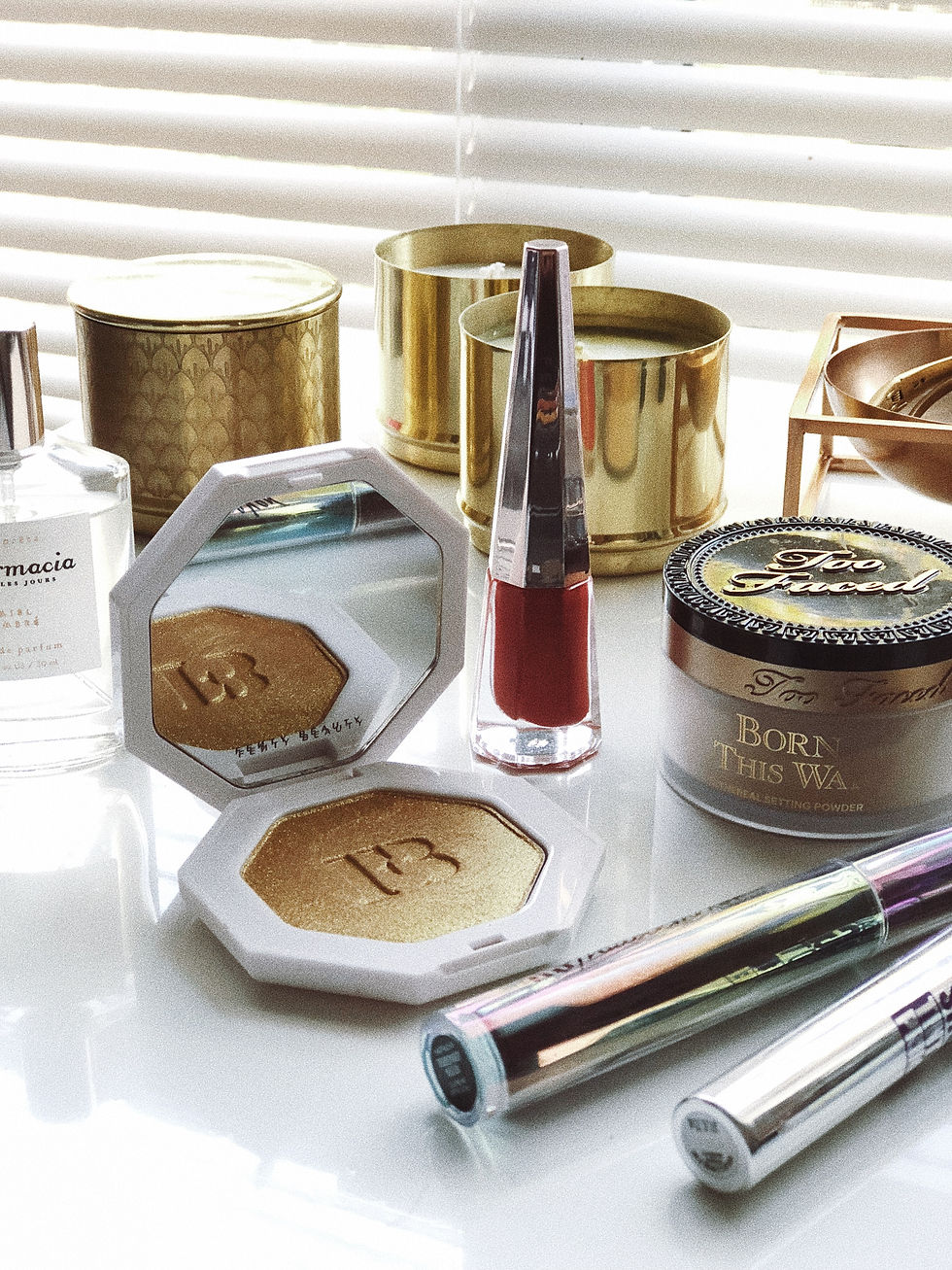Written for Fashion & Beauty Monitor

Beauty and skincare dupes have been in circulation since around 2019 in some shape or form. Designed to make beauty accessible to everyone – tapping into the latest trends at an affordable price point – influencers have elevated their ubiquity on platforms like TikTok in particular.
Online media continue to run roundups of the best makeup dupes on the market to the present day (April 2023), with the likes of Who What Wear, Teen Vogue, Glossy and Buzzfeed alerting consumers to cheaper alternatives of viral products that apparently deliver similar results and are ‘worth the hype’.
Typically a response to a viral product having sold out, or simply consumers shying away from premium products as a result of the cost-of-living-crisis, influencers and digital publications have widely publicised the comparisons. Be it e.l.f’s Halo Glow Liquid Filter as a dupe for Charlotte Tilbury’s Hollywood Flawless Filter, or Maybelline’s Lifter Lip Gloss in Pearl standing in for Fenty Beauty’s Gloss Bomb in Diamond Milk, the phenomenon certainly poses an opportunity for savvy brand PRs to capitalise on.
A trend that doesn’t seem to be going anywhere fast, the tag #dupes has 3bn views on TikTok today, with #beautydupes at 53m and #makeupdupes at 853.5m. Speaking to Refinery29, Alex Hawkins, senior foresight writer at The Future Laboratory credits content creator endorsement for the demand from trend-led Gen Z and millennial consumers: ‘Dupes in particular have been popularised by creators on YouTube and TikTok, while brand loyalty has also faltered, and younger consumers are far less enamoured by legacy beauty brands.’
This idea is reinforced by the increased use of #gatekeeping across both TikTok and Instagram, wherein influencers turn the table on secret-keeping and reveal their industry secrets. A common example of this in recent years has concerned dupes, with a flurry of videos featuring rhetoric like ‘pretty girls don’t gatekeep makeup dupes’.
What was originally born out of a global pandemic which saw a sizeable shift in consumer behaviours has now evolved into a culture, driven by an educated community. It’s important to note that whilst consumers are looking to find thriftier options on the whole, they aren’t willing to sacrifice on quality or performance.
Today’s shoppers no longer equate a high price tag with being the best – a fact illustrated by the popularity of bargain brands The Ordinary and CeraVe. Furthermore, as subscription service BeautyPie goes from strength to strength, selling luxury products for less, emphasis has moved away from labels and towards formulas and product performance, based on peer reviews.
Whilst some prestige brands may be concerned about losing customers, PRs for those companies can rest assured there will always be a demographic for luxury products. It is likely dupes are appealing to a different audience than their core target market.
From an ethical perspective, dupes can become problematic if brands have a clear intent to copy either packaging or aesthetic, churning out near identical copies that rip off other companies. Whilst these products may look the same, the ingredients and results are likely to differ greatly. This is when brands can fall into patent infringements, as was seen in Charlotte Tilbury’s widely publicised legal case against Aldi, for the sale of unauthorised replicas with ‘substantial similarities’.
As long as brands are encouraging their customers to shop responsibly, do their research and endeavour to combat over-consumption or waste, dupes do present a great reactive PR opportunity.
Savvy brand PRs could be working with influencers to create content that endorses their products as responsible dupes. Huda Beauty harnessed the trend with this blog, listing the best makeup dupes out there, including one of their own products. Brands that offer products that are comparable in performance, colour, pigment or effect to more premium items can incorporate dupe-related themes into their influencer strategy to build hype. As long as claims have merit, it is possible they will be substantiated by other beauty consumers, which could result in an increase in organic publicity and even a boost in sales.
Comments